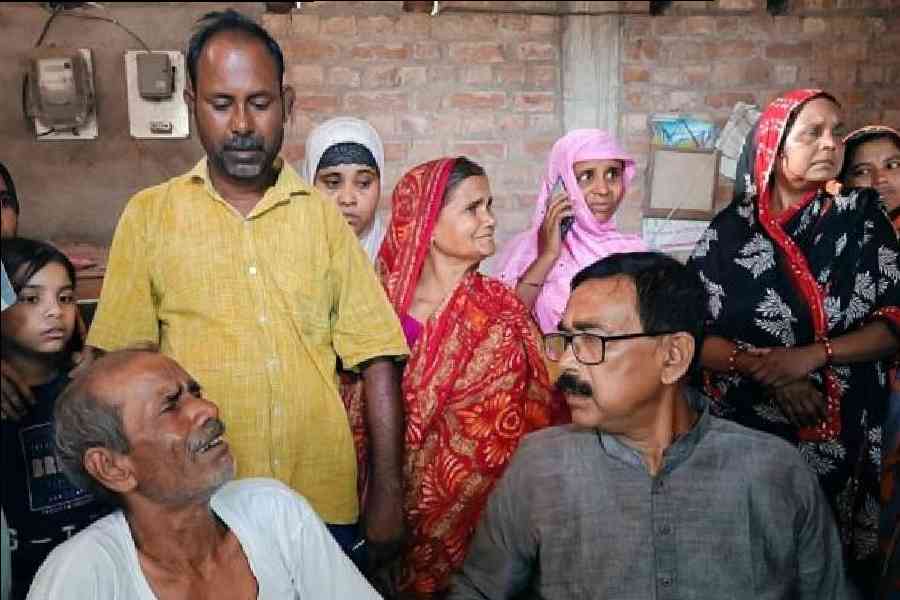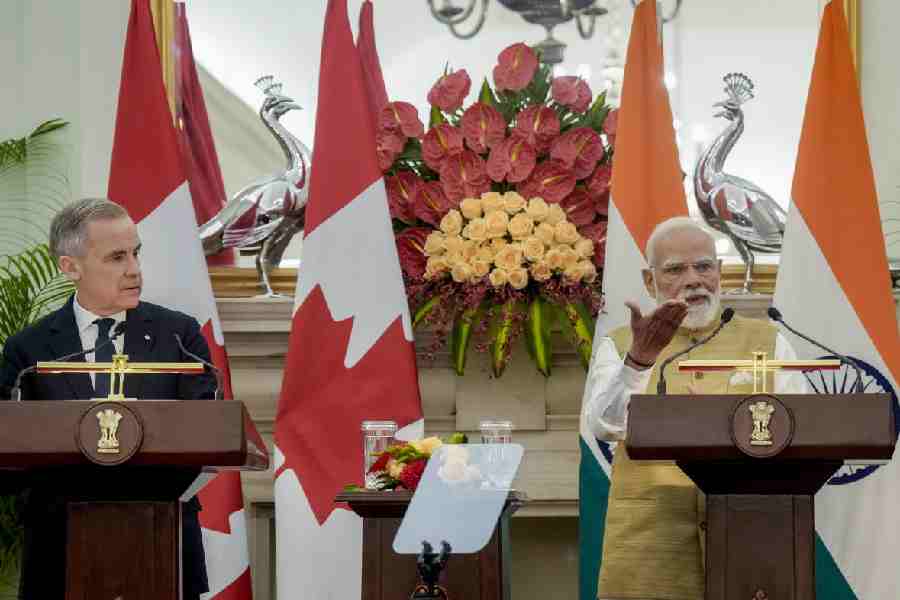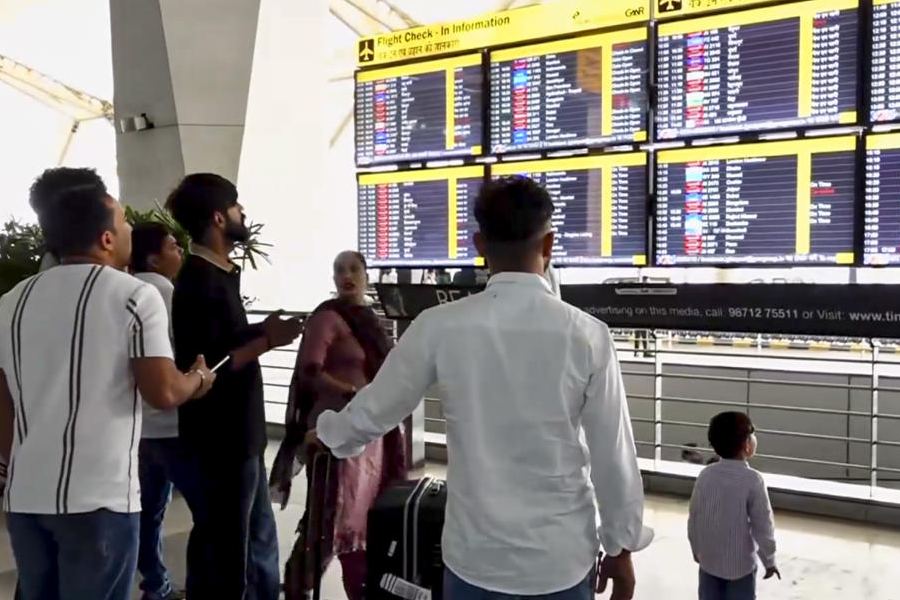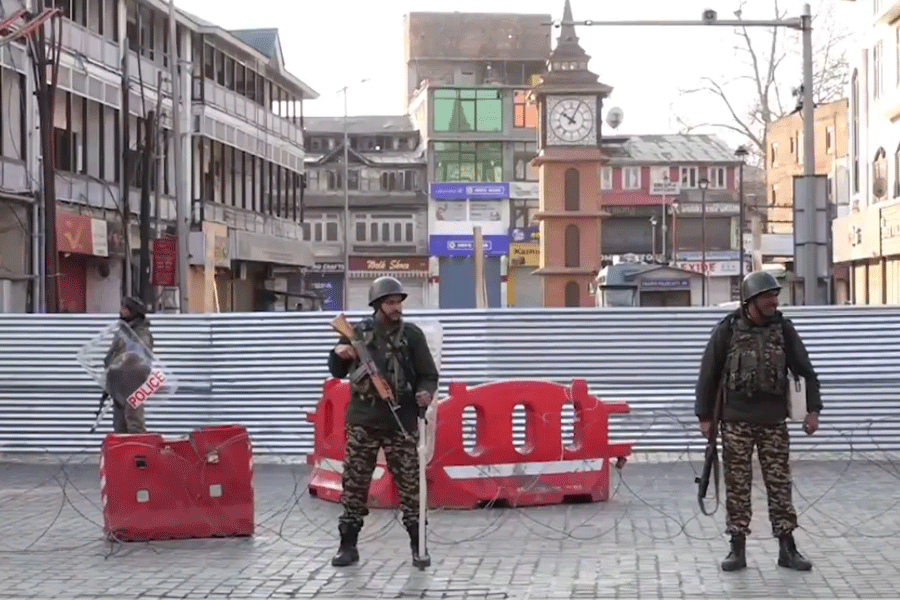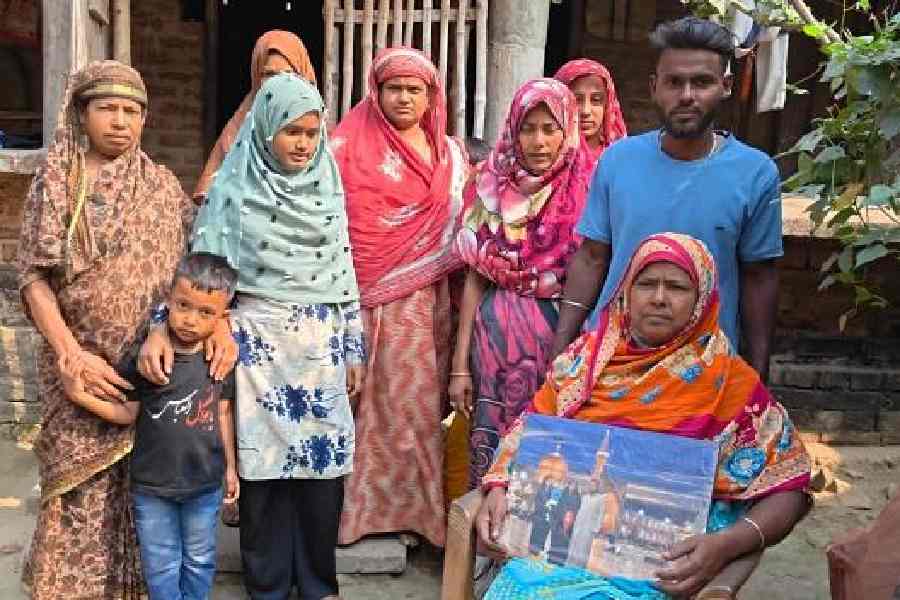Havildar Jhantu Ali Sheikh, an Indian Army commando serving with the 6 Para Special Forces, was martyred during an anti-terror operation in Udhampur district of Kashmir on Thursday, becoming the fourth person from Bengal to become a victim of militancy in 48 hours.
Bitan Adhikary and Sameer Guha from Calcutta, and Manish Ranjan Mishra from Purulia were among the 26 people gunned down on Tuesday in the popular tourist destination of Pahalgam by armed militants.
After Jhantu’s death was confirmed by his elder brother Rafiqul, who also serves in the Indian Army and is currently posted in Kashmir, grieving family members and neighbours at Patharghata village near Tehatta in Nadia district said “terrorism has no religion and recognises no faith”.
“Since the Pahalgam killings, we heard that the terrorists targeted only Hindus. My brother was a Muslim, but those militants did not spare him. With the death of my younger brother, I understood that terrorism has no religion and they recognise no faith, only violence,” said Nijam Sheikh, a cousin of Jhantu.
Following the massacre, a narrative was pushed by the saffron ecosystem mainly on social media platforms that the tourists were killed because they were Hindus, even though among those killed were two Christians and a Muslim.
Nijam said residents of Patharghata had been anxious since the two siblings from their area had been deployed in Kashmir with the Indian Army.
Chief minister Mamata Banerjee spoke to Jhantu’s family and assured them of full support. She directed the Nadia district administration to take care of his grieving parents.
Patharghata, a remote village near the Bangladesh border with a mixed population, has sent at least a dozen youths to the Indian forces, including Jhantu and his elder brother Rafiqul.
Neighbours and people of adjoining areas were visiting the under-construction two-storey house of Jhantu’s family to offer condolences.
Around 10am on Thursday, 61-year-old Sabur Ali Sheikh, standing silently in Patharghata Idga Math Para, was devastated to learn that his youngest son had been martyred during a combing operation in Udhampur.
Jhantu’s father, a marginal farmer who worked tirelessly to help two of his three sons join the Indian Army, was seen consoling his ailing wife amid overwhelming grief.
“It was my dream to see them serve the nation. My sons fulfilled that dream, but my happiness was short-lived,” he said.
Jhantu is survived by his wife, a 10-year-old son and a six-year-old daughter.
Family members said Jhantu’s wife, Sahana, lives in Agra for the sake of their children’s education. Jhantu joined the Indian Army in 2008 and inspired many local youths to consider it as a career.
Palash Ahammed Mandal, an English teacher at a local Madhyamik Siksha Kendra, visited the family to offer condolences after hearing the news.
“It’s a great loss for the village and the family, especially for his father, who worked so hard to raise his sons. It pains us when terrorism is linked to religion. Jhantu, whom I taught in school, proved with his sacrifice that terrorism respects no faith,” said Mandal.
Trinamool Congress leaders like Kunal Ghosh and Rajya Sabha member Samirul Islam highlighted Jhantu’s sacrifice and criticised the saffron ecosystem and the BJP, ablebit without naming the party, for linking the Pahalgam terror attack to religion.
“Looking for religion? Look—Indian soldier Jhantu Ali Sheikh was martyred in a gunfight with militants in Udhampur, Jammu and Kashmir,” Ghosh wrote on X.
Islam echoed Ghosh.
“Terrorism has no religion, and terrorists recognise no faith,” said Islam.
CPM state secretary Md Salim criticised those linking a terror act to religion.
“Today, Jhantu Ali Sheikh, a backward Muslim, gave his life to combat terrorism. The Army lauded his bravery. But those who are searching for the religion of the dead should understand that it is their kin who use religion to kill people,” said Salim.
However, criticising the TMC and the CPM, BJP MP Samik Bhattacharya said those parties should pose questions to those who had killed Hindus after identifying their religion.
“The family members of those killed claim their loved ones were identified as Hindus before being executed,” Bhattacharya said.

